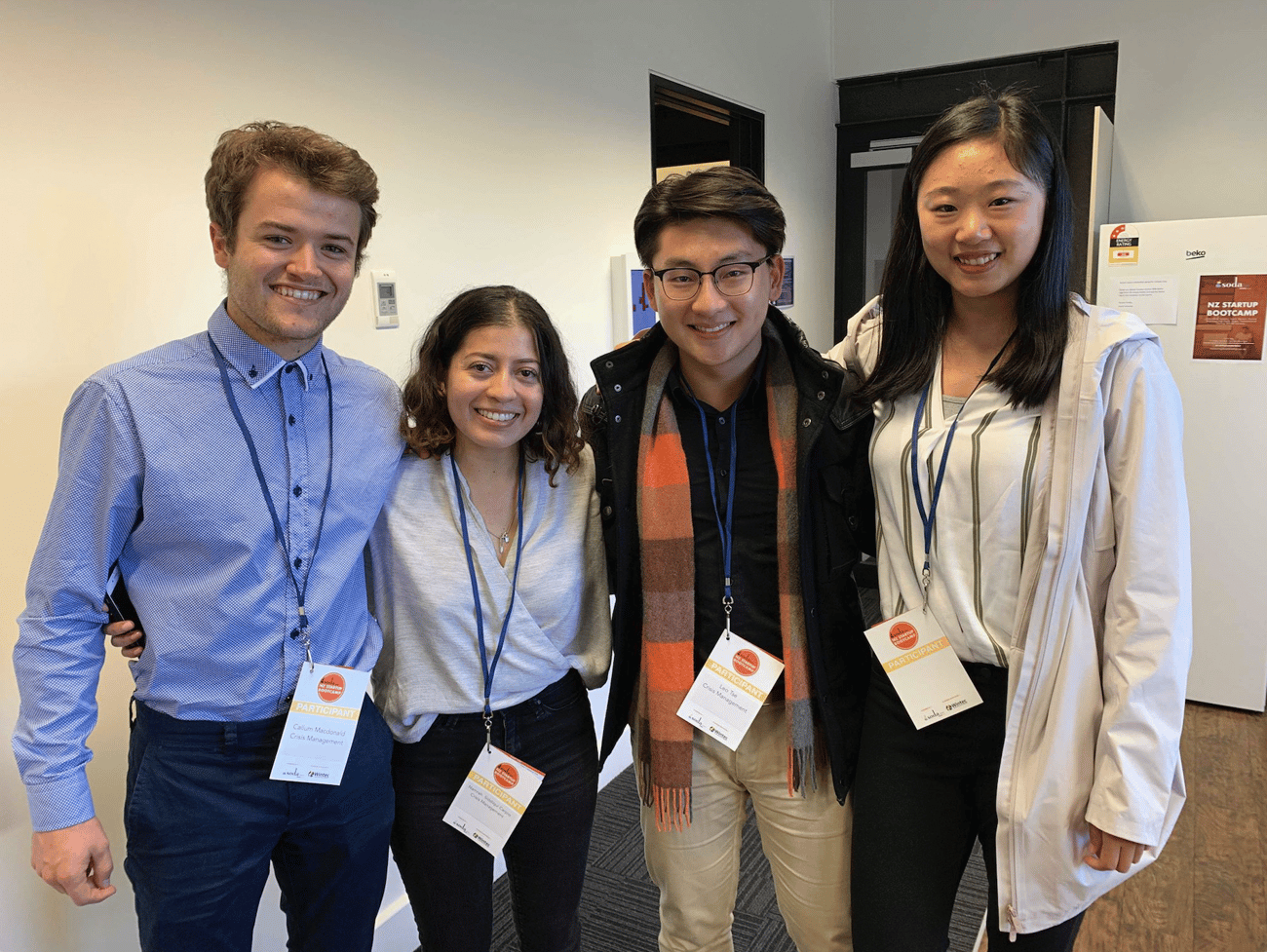Emerging Talent: The students who have set out to solve refrigeration leaks

Refrigeration management. It’s not the sexiest of issues facing the world today, but it’s definitely a significant problem. Environmentalist Paul Hawken has said the number one solution to solving the climate crisis is tackling just that, seeing as the operational costs of refrigerant leak avoidance and destruction are estimated to cost $903 billion by 2050.
This is because unbeknown to most of their users, every refrigerator and air pump contains chemical refrigerants that absorb and release heat to activate chilling. Refrigerants were even once contributors to hurting the ozone layer, but the type that did the most damage were phased out. However, on the downside, the main replacements, HFCs, have 1000 to 9000 times greater capacity to warm the environment than carbon dioxide.
Solving this leakage problem would have a huge impact on the environment. Hawken says containing 87 percent of refrigerants likely to be released over 30 years could avoid emissions equivalent to 89.7 gigatonnes of carbon dioxide.
It was because of the sheer size and complexity of this problem that Chameleon won Soda Inc’s 2019 Startup Bootcamp’s Gallagher Best New Idea category for their product idea – a gel-based, colour changing product for refrigerators in order to help reduce the emissions generated from gas leaks.

The team is made up of four young Waikato University students – Namrah Siddiqui Carpio, Callum MacDonald, Chun Ho Tse (Leo), and Jiabao Zhao (Boa) – all of who are aged from 21 to 23.
The idea sprung from MacDonald, who was working doing maintenance on a refrigeration unit to find gas leaks, but was frustrated that the only tool he had to discover them was detergent.
“I thought, ‘How good could it be if I had a machine told us there was a leak?’ Surely we could develop a solution for that,” he says.
“We knew that the problem with refrigeration was quite big and a significant part of the environmental problem the world is facing, but it’s even more of a severe issue than we actually knew and really good enforcement for our idea as if it does work, it can have a really positive impact.”
At the moment, the product is in the concept stage, but the team knows the components they want to use in the product but the $10,000 prize from winning NZ Startup Bootcamp is going to be used as seed money towards the company that can help with R&D and testing.

Macdonald says the first step they’ve outlined is to target the refrigeration industry, but in terms of products they want to develop, they have their sights set on larger issues, like natural gas. A study published in Forbes estimates that natural gas leakage adds up to US$30 billion in lost revenue annually.
As for the experience of participating in New Zealand’s only 48-hour start-up bootcamp, the team agreed that the networking, the connections and the friendships they made were one of the highlights.
“One of the massive learning curves was there’s someone out there with the answer to the exact question you’re asking, it’s a case of finding them. We gained so many insights from the mentors from asking the right questions – you’ve got to really build up those networks and make sure you’re using them to the best of your abilities,” Macdonald says.
“It was amazing to see how many people are passionate about their ideas – it was a really good opportunity for us to learn how under pressure,” Ho Tse adds. “The atmosphere there wasn’t stressful, there was yoga, meditation sessions, food and drink – it was really good support.”
Zhao describes winning the competition as “euphoric”.
“When we won it was ridiculous, it was kind of like being famous – they wanted to talk to us, have a photo with us. We got a really good reception,” she says.
At the moment, the Chameleon team is juggling finishing their degree with their fledgling start-up. They’ve been meeting with connections they made during NZ Startup Bootcamp and pushing the ideas forward, such as Callaghan Innovation.
“We want to keep the momentum going,” Ho Tse says. “When you finish a competition you think it’s finished, but it’s the start of our journey.”
MacDonald says one of the key learnings he’s taken away from this is it’s easy to have an idea for a potential business, but just keep it in your head.
“When you put the idea you’ve formed in the market and see whether it’s a good idea or not, it can be quite nerve-wracking and easy to put off, but later typically never comes – so it’s important to go out and put your ideas to the test,” he says.
Watch this space.



